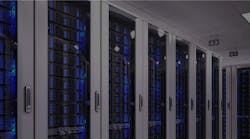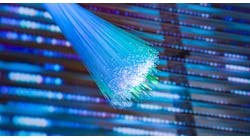Cold Plate Cooling Technology Offers Future-Ready Flexibility for Data Centers
A new white paper from JetCool Technologies explores how microconvective cooling technology that uses cold plate design can provide future-ready flexibility for data centers.
Get the full report.
With the increase in data volumes being generated by new IoT devices, artificial intelligence, and streaming services, JetCool says “the traditional data center model, which relies on air cooling to remove heat from servers and other equipment, is no longer sufficient.” In their new white paper, the company explores the state of liquid cooling and how microconvective cooling technology using cold plate design can drive data center capabilities.
First, the paper outlines the types of liquid cooling solutions and how the technology enables faster compute. Then the author explains how microconvective cooling technology, using a cold plate design, offers “performance advantages for today’s data center, HPC, and AI applications demonstrating extensibility beyond 1,000 Watts TDP.”
“Liquid cooling is now being recognized as a key enabler of both faster data center performance and increased sustainability.” – JetCool, “Drive Faster Compute Sustainability with Microconvective Cooling“
JetCool says that cold plates offer “simple, scalable, and sustainable liquid cooling for data centers” by providing thermal efficiency advantages that allow for both performance and sustainability gains. They explain how the technology works in part by saying, “designed using low thermal impedance material such as copper or aluminum, cold plates sit on top of the high TDP semiconductor device.”
The architecture’s efficient flow dynamics and hot spot targeting also make the solution more sustainable by using less pumping power than other designs. They note that cold plate technology eliminates the need for evaporative cooling. They say, “data centers can achieve a 90% reduction in water usage, and an 18% lower electricity consumption, averting 35M metric tons of CO2 emissions annually.”
In the paper, JetCool also presents a use case for the cold plate technology, illustrating how it helped a data center that operates mission-critical applications achieve aggressive compute and sustainability goals.
Download the full report to learn more about microconvective cooling technology.

Kathy Hitchens
Kathy Hitchens has been writing professionally for more than 30 years. She focuses on the renewable energy, electric vehicle, utility, data center, and financial services sectors. Kathy has a BFA from the University of Arizona and a MBA from the University of Denver.




